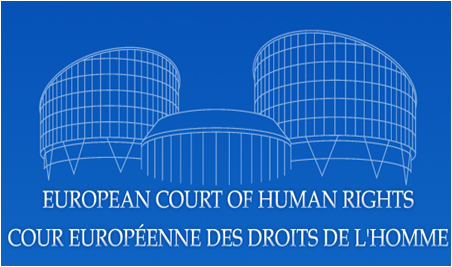
Jeremy D. Morley
In a significant ruling concerning the
“grave risk” exception to the Hague Abduction Convention, the European Court of
Human Rights, Fourth Section, has ruled that the country of Georgia violated
Article 8 of the European Convention on Human Rights by failing to return a
child to Ukraine on the grounds of “grave risk.” GS v Georgia (Application No. 2361/13).
The trial court in Georgia had denied
the mother’s petition for the child’s return on the ground that the child had
suffered a trauma in Ukraine as a result of the death of his sister. Although
an appeal court had overturned that ruling, the Supreme Court of Georgia had
reinstated the original decision.
The European Court concurred that the
child’s psychological trauma was a relevant factor to be considered during the
boy’s return proceedings, but it disagreed with the subsequent reasoning of the
Supreme Court, which led to the finding of the existence of a “grave risk” for
the child in the event he was returned to Ukraine. Although the Supreme Court
had used general phrases such as “physical or psychological harm” or “otherwise
intolerable situation” it had failed to explain what those risks exactly
implied. Significantly, the father had not asserted that the applicant herself
posed a threat to the boy. Further, there was no expert evidence in the
case file to suggest that the return to Ukraine as such would exacerbate the
boy’s psychological trauma. The European Court criticized the fact that the
social worker and psychologists’ reports had proposed an analysis of the
implications of the child’s possible return to Ukraine; and there had been no
exploration of the possible risks in this regard. The psychologist’s report had
merely stated that the boy had experienced psychological trauma and was in need
of assistance, which the applicant did not contest. On the contrary, as someone
with a medical background, she had consistently reiterated before the domestic
courts her readiness to provide her son with the required psychological
assistance in Ukraine.
The Government of Georgia argued that
the boy wanted to stay in Georgia and that his return and consequent separation
from his father and the paternal family would have caused him additional
psychological trauma. However, the European Court observed that the aim of the Hague Convention is to
prevent the abducting parent from succeeding in obtaining legal recognition, by
the passage of time, of a de facto situation
that he or she had unilaterally created. Hence, the abducting parent cannot
benefit from his or her own wrongdoing. Further, the exceptions to return under
the Hague Convention must be interpreted strictly. Thus, “the harm referred to
in Article 13 § b of the Convention cannot arise solely from separation from
the parent who was responsible for the wrongful removal or retention. This
separation, however difficult for the child, would not automatically meet the
grave risk test. Indeed, as the Court concluded in the case of X v. Latvia, the notion of “grave risk”
cannot be read, in the light of Article 8 of the Convention, as including all
the inconveniences linked to the experience of return: the exception provided
for in Article 13 (b) concerns only the situations which go beyond what a child
might reasonably bear (see X v. Latvia, cited
above, § 116; see also Maumousseau, cited
above, § 69).”
Accordingly, and also having regard to
the facts that no expert examination was conducted concerning the implications
of the child’s separation from the paternal family, and that the living
conditions awaiting the boy in Ukraine were also left without consideration,
the Court found that Georgia’s argument about possible psychological trauma due
to the child’s separation from his father and the paternal family, was misconceived.
Since there was no direct and
convincing evidence in the case file concerning the allegation of a “grave
risk” for the child in the event of his return to Ukraine, the ruling by the
Supreme Court of Georgia was erroneous.
The European Court then criticized the
Georgian Court for having failed to properly determine the child’s best
interests in view of the specific circumstances of the current case and to
strike a fair balance between the parties’ conflicting interests. It is
noteworthy in this regard that the European Court has continued to insist that
“best interests” must be considered in European determinations under the Hague
Abduction Convention. Specifically the Court stated that, “The Court reiterates
in this connection that it has repeatedly emphasised in its case-law that the
best interests of the child are to be the primary consideration in all
decisions relating to children (see X v.
Latvia, cited above, § 96 …” The European Court then provided an analysis
of its opinions as to where the child should best live. Such an analysis, this
writer respectfully contends, is itself in plain derogation of the terms of the
Hague Abduction Convention. See
my article on the European Court’s ruling in the Neulinger case.


